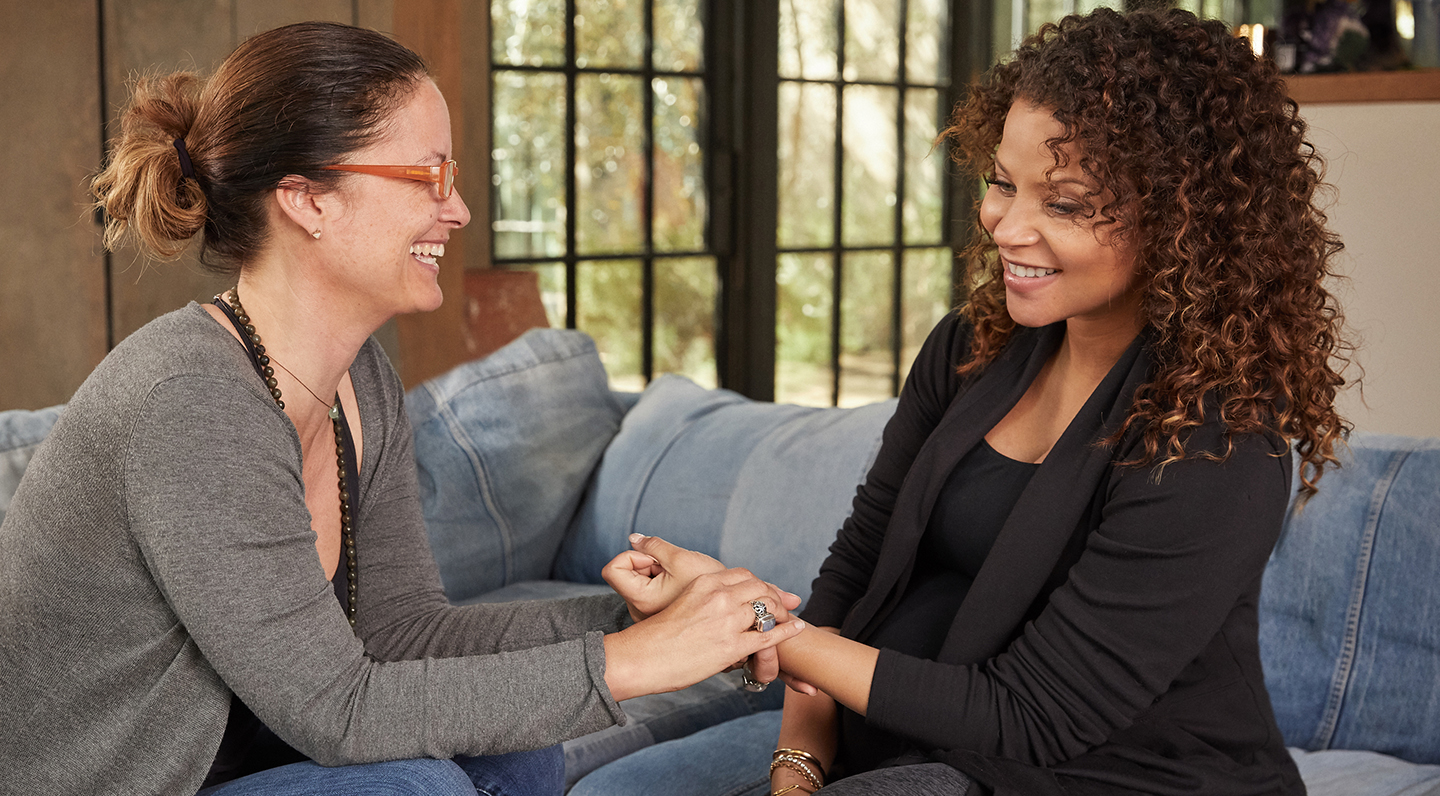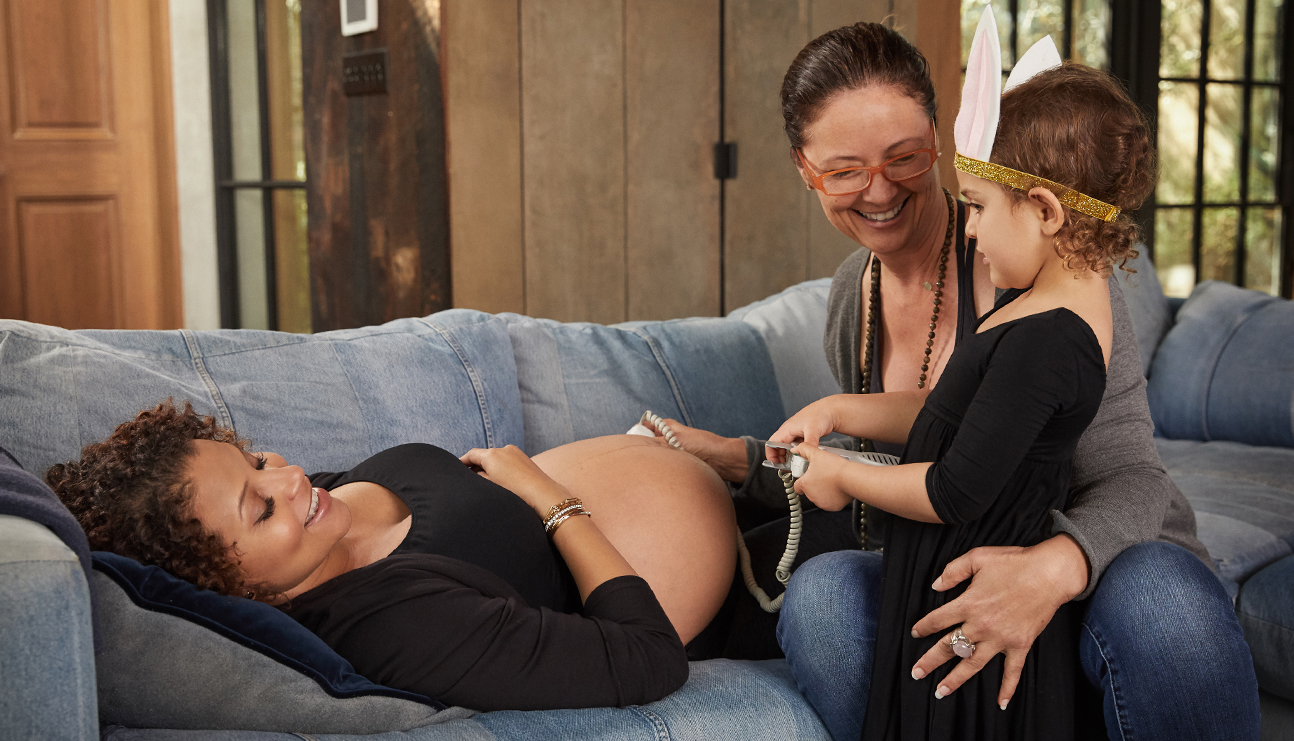Midwife Or Doctor? Which I Chose & Why
Denise Vasi
Deciding between a doctor and a midwife can feel much harder than it is. Knowing the birth experience you want to have, in an ideal situation, is the key to figuring out who is best suited for your growing family.
A midwife is a trained professional that is equally as qualified as a doctor to provide maternal care and assist women with healthy, low-risk pregnancies. Just like an OB/GYN, a midwife can conduct prenatal exams, urine and blood tests, assess the health of you and your baby, make suggestions when it comes to prenatal vitamins, diet and exercise. In fact, midwives spend more time studying “normal,” healthy pregnancies while doctors receive training that mostly focuses on high-risk situations, what to do when things are going wrong, and C-section birth.
The overall midwifery philosophy is that midwives assist with the body‘s natural ability to give birth. They use science, research and evidence to address the health needs of women but their approach is based on the care model. They support a mother’s decisions, acting more like a partner through the process rather than just a health provider. Most families that opt for a midwifery experience are looking for low tech, low intervention care, labor, and delivery.
Alternatively, most obstetricians aka OB/GYN doctors tend to take an approach that is based on managing the pregnancy. According to the American Pregnancy Association, OB/GYNs are trained to manage complications during pregnancy, birth, and postpartum. Prenatal care is supported by more technology and possibly more medical intervention, to control the outcome. For women with high-risk pregnancies, having an OB/GYN is absolutely necessary and those technological interventions are life-saving for mother and baby.

When it was time for my husband and me to decide between a doctor or midwife four years ago, we opted to go with midwives. Our experience was as close to ideal (for us) as possible, and the level of care I received during my pre and postnatal phase was impeccable. It’s no surprise that for our second time around, we’re going the same route.
Here are five reasons why I chose a midwife over a doctor.

The Relationship
Things felt cold and stoic for me when I first visited an OB/GYN office for a prenatal appointment. I sat in a waiting room for thirty minutes or more. They handed me a cup to pee in, took my weight, my blood pressure, I had some blood work done, then I was ushered into a chilly, poorly lit room and asked to get undressed and prop my legs up for a two-minute sonogram. The doctor came in, greeted me for all of five minutes, told me everything looked good and then told me to check-in with the front desk for my next appointment. The whole thing lasts about twelve minutes. I actually spent more time in the waiting room than I did with anyone during my prenatal visit.
With midwives, your meetings are much longer, some times as long as an hour long. During your time together, your midwife will ask you a ton of questions and engage in discussions with you about how you’re feeling emotionally, what your body is physically going through, and will advise you on how to maintain a healthy nutritious diet. A midwife might suggest ways to ease anxiety. They might suggest natural remedies to help aid with morning sickness or sleeping issues due to pregnancy. They also usually have a resource list of other practitioners that can help with the whole pregnancy process. From birthing doulas to prenatal chiropractors, to postpartum doulas and even birthing photographers—midwives offer full-circle care to mothers. You can probably tell from the photos of my midwife Blyss Young and me, that the relationship you build is quite extraordinary, as it should be. This person is going to be by your side when you bring life into this world.
Individualized Care
Every feeling, every thought, every worry or desire, is taken into consideration. The advice and information my midwife offers is specifically tailored to me. Every woman is different, and every pregnancy is different. My second pregnancy has been nothing like my first, and so I love that with a midwife I always get individualized care. This approach allows me to make informed decisions that are not based on generalizations.
My Goals Are Her Top Priority
Midwives genuinely want you to have the birth experience you desire. They make your goals their priority. For my second birth, I want my daughter to be involved as much or as little as she wants. Right now, my daughter says she wants to catch the baby. No one really knows how she will react on the day of, but what I do know is—if she wants to be in there, with us, participating then we definitely want everyone on board, supporting and helping to facilitate that for our family. Midwives tend to be more open-minded to ideas like that.
Full Time Support
Support is just a call or text away! With a midwife, you have the accessibility to reach out with a concern or question at almost any given time. Whether it’s a huge concern or just the jitters, your feelings are always validated, and advice is there when you need it.
When it comes to labor support, a midwife is with you for the long haul. They can be right there, in it with you for a much longer amount of time than a doctor can and they will not rush you!
Little To No Intervention
Did you know America has the highest C-section rate in the world? Little to no intervention, as long as my baby and I were healthy was and is a big part of my birth plan. Midwifery care reduces the risk of unnecessary C-sections as well as forceps and vacuum use. A hospital-level analysis out of the University of Massachusetts at Amherst reported that “women who gave birth at hospitals with more midwife-attended births had lower odds of delivering by cesarean and lower odds of episiotomy.”
For our family having our daughter born at home was a magical opportunity we feel blessed to have experienced (and we can’t wait to do it again), but it’s important to know that you can also experience midwifery care at a hospital. Additionally, women in our country are fortunate to have doctors and technological advances that can be utilized when necessary and there are some great doctors out there. Knowing that we have choices is what’s most important.
**The opinions expressed in this blog post are based on my own personal experience.





